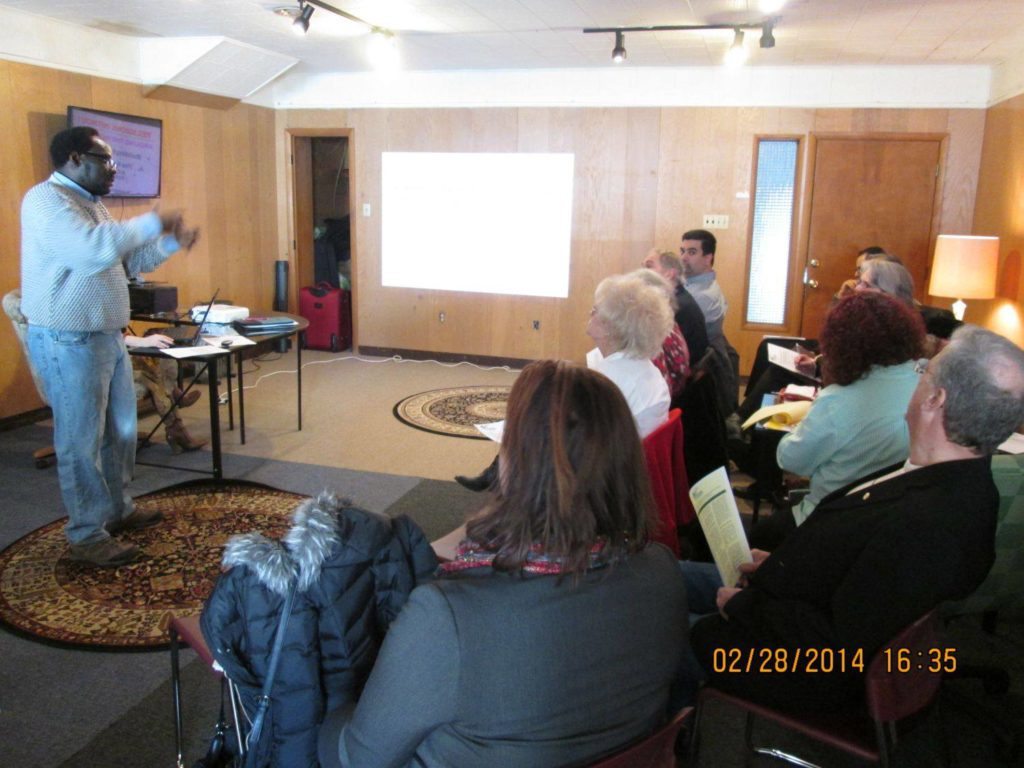The AMANI project addresses the many social and psychological issues that have emerged as a consequence of the United States 12 years of the “War on Terror”. Also known as the “Global War on Terrorism,” this conflict is essentially an international military campaign focused on eliminating Al Qaeda and other militant organizations, and was started as a reaction to September 11, 2001. The conflict has been joined by the USA allies including the UK and a host of NATO and non-NATO affiliated nations. Ever since, the global struggle against extremism and terrorism has increased dramatically because of a series of incidents that have occurred in the US and worldwide.
During this period of conflict, print and electronic media have been heavily used to communicate both positive and inflammatory messages. The media has singlehandedly contributed to creating a dangerous social wedge between Muslims and non-Muslims living in the United States. For example, for several days following the 9/11 attack, the media continued to show images of the World Trade Center collapsing. And the aftermath of September 11, many American Muslims have suffered tremendous negative typecasting in the United States. Recent events which occurred in the City of Boston on April 15, 2013 only served to further vilify the Muslim community. U.S. citizens, businesses, local governments and other entities associate these unspeakable events committed by a handful of violent extremists with Muslim Americans.
Examples of discrimination by political leaders include former presidential candidate Herman Cain for which he later apologized. New York’s Mayor Michael Bloomberg and Police Commissioner Raymond Kelly defended surveillance of Muslim businesses, mosques and students, a sentiment reinforced again by officials such as Republican Representative Peter King* immediately following the Boston events.
Perhaps above all, is the fact that Anti-Islamic hate crimes have increased significantly nationwide since 2009. An analysis by the Scripps Howard Foundation found that states with the largest Muslim populations have broad disparities in anti-Islamic, hate-crime incidents. For example, Texas has three times as many Muslims (421,972) as Michigan (120,351), yet Michigan had more than triple the number of anti-Islamic hate crimes as Texas did in 2011. Before the September 11 attacks, there were very few anti-Islamic hate crimes, according to the FBI. The number of incidents skyrocketed by more than 1,600 percent from 28 in 2000 to 481 in 2001 and has remained above 100 every year since
According to the FBI, crimes targeting Muslims spiked by 49.5 percent in 2010, the largest increase since 2001, according to the FBI. A high concentration of Muslims in a state was not an automatic indicator that they encountered more discrimination. According to the Southern Poverty Law Center, which tracks hate groups, 30 Muslim hate groups were identified by 2011.Anti-Islamic hate crimes rose in eight of the 10 states with the most Muslims from 2009 to 2011. New York had the most anti-Muslim hate groups (nine), while five states with the most Muslims including Michigan and Texas had at least one. By conservative estimates, 2.8 million Muslims currently live in the United States, a number that is expected to double by 2030.

Although 157 hate-crimes incidents were reported in 2012, according to the Bureau of Justice Statistics report, FBI data is understated and the real number of anti-Islamic hate crimes is probably between 3,500 and 5,000 every year since 2001. The discrepancy is rooted in that the BJS report also includes crimes not reported to the police. Incidents of hate crimes against the Muslim community are expected to get only worse as a consequence of the Boston Bombing incident on April 15th, 2013.
A 2012 study conducted by Ihsan Bagby, Professor of Islamic Studies at the University of Kentucky, found that the majority of 524 Mosque leaders in the study believed that it was critical that the Muslim community become more visibly involved and engaged with American institutions, governance, and civic life as part of an effort for safeguarding peace*. Furthermore, the community must be vocal in addressing the effects of fear, bias, and scrutiny in denying Muslim Americans the right to live peaceful and productive lives*. Advocates of peace argue that “To ignore it is to potentially allow the floodgates of hate crimes to open. Every action has to be taken to make sure those numbers go down again.”*
Therefore AMANI exists not only to protect the life and wellness of innocent Muslim-Americans in the US who risk potential victimization, but also to prevent those from outside Muslim communities from harboring feelings of unnecessary fear and divisiveness. The project is partially funded by the Government of Azerbaijan. We are currently seeking other donations and sponsors at the local and national levels to fully support and fund this project and sustainability of initiatives.
